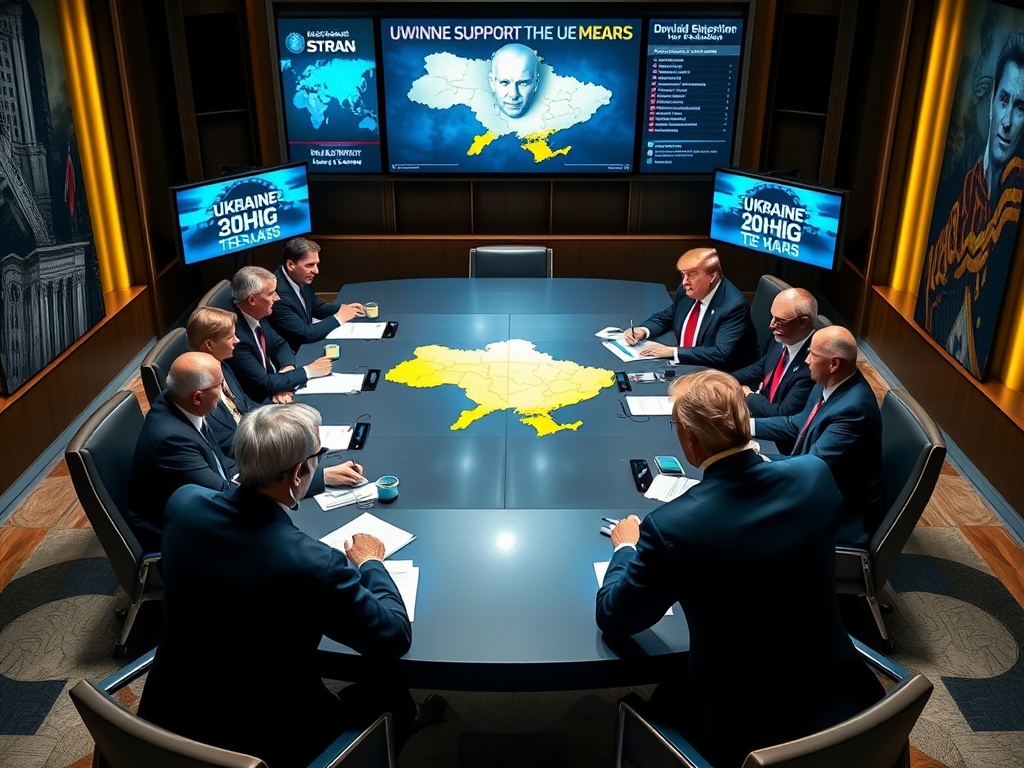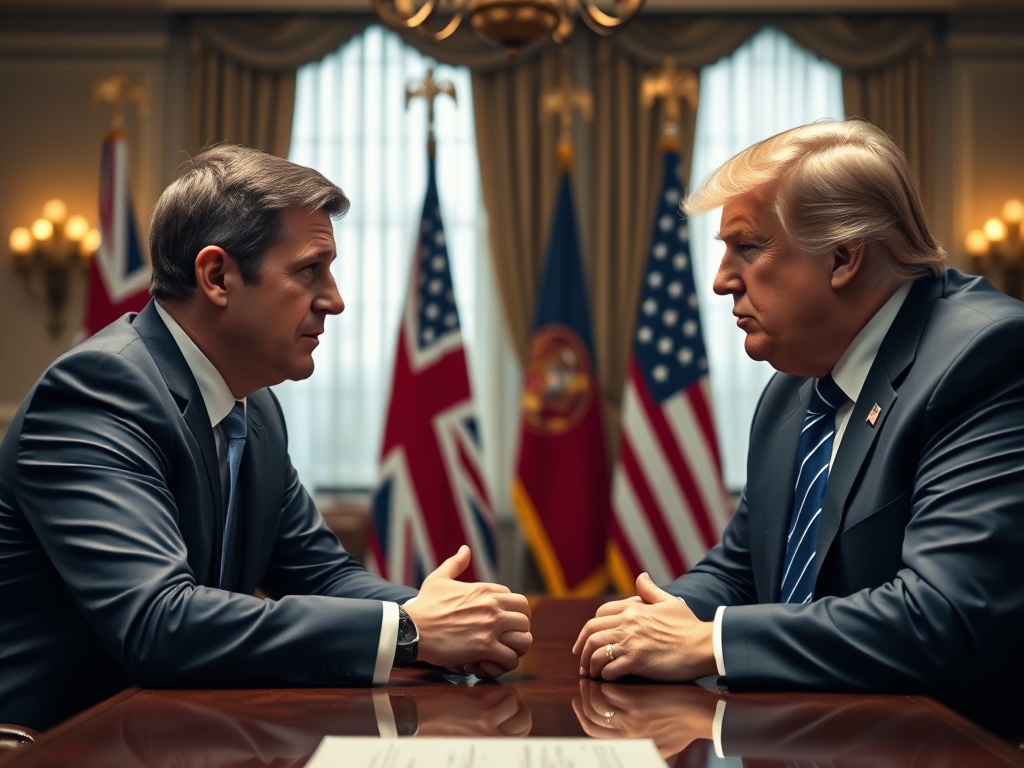Starmer’s Diplomatic Mission: Aiming to Influence Trump on Ukraine

In Brussels, the heart of European politics where both the European Union and NATO maintain their headquarters, there is a palpable sense of skepticism among officials regarding the potential for Donald Trump to soften his aggressive stance on critical issues such as Ukraine, defense, and trade. However, many see Keir Starmer, the leader of the UK Labour Party, as one of the best candidates to engage with Trump and potentially mitigate his more extreme instincts.
Today, Starmer is scheduled to visit the White House, just two days after French President Emmanuel Macron’s visit and only two weeks following Trump’s surprising announcement that he was in discussions with Russian President Vladimir Putin about finding a resolution to the ongoing war in Ukraine. In response, Macron hastily convened key European leaders, including Starmer, for an emergency summit in Paris.
Looking ahead, Starmer is set to host another crucial European gathering in London this Sunday, followed by a special EU summit next Thursday. The format of these meetings—whether under EU, NATO, or UK banners—has become less significant; what truly matters is their unified objective: to preserve as much support as possible for Ukraine.
The series of summits highlights how European leaders, including top officials from the EU and NATO, are collaborating more closely than ever to ensure a coherent approach when dealing with Trump. The primary message they intend to convey is that any viable peace agreement concerning Ukraine must be accompanied by credible security guarantees, which must be backed by the United States.
“We must exhaust all options to keep Ukraine in the game and maintain NATO’s unity,” stated one EU official in Brussels. “Starmer is in constant communication with Macron and other leaders to coordinate our messaging. The format no longer matters; EU, NATO, UK—we all share the same goal: to save as much as we can for Ukraine.”
European leaders have been maintaining regular communication, as they solidify their positions and respond to the rapidly evolving situation. Macron briefed his fellow EU leaders during a video conference yesterday, sharing insights from his meeting with Trump, during which he emphasized Europe’s substantial contributions to Ukraine’s support, alongside ongoing efforts to enhance European defense capabilities.
Starmer, much like Macron, wields considerable influence in Washington, given that Britain and France boast the most formidable militaries in Europe and possess the unique capacity to project power effectively.
“Starmer and Macron are in constant dialogue,” noted Ian Bond, deputy director of the Centre for European Reform. “European leaders are beginning to discuss defense matters outside the usual EU frameworks, inviting the UK to participate, as we recognize that reliance on the US is no longer a viable strategy.” He added, “We have moved past the notion that, ‘You can count on the Americans to do the right thing after they’ve explored all alternatives.’”
European leaders have expressed concerns that Trump has already made critical concessions to Putin in negotiations, including dismissing the prospect of NATO membership for Ukraine and relinquishing claims on territory seized by Russia. However, European nations are keen to assert their role in potential peace talks, notably by proposing the deployment of their troops as peacekeepers in Ukraine.
While the Kremlin has publicly opposed the idea of peacekeeping forces, Trump claims that Putin is amenable to it. Nevertheless, European leaders insist that the US should provide logistical support for this initiative, as they are perceived to have the necessary resources to ensure the success of a peacekeeping operation.
“We want the US to be engaged in this endeavor because they possess the equipment and capabilities,” remarked one NATO official. “Moreover, we know that Trump is eager to demonstrate that he brokered a peace deal. It is essential to convey that this deal will falter if it is not properly enforced.” During his discussions with Trump, Macron referenced the Minsk Accords, the ceasefire agreements from 2014 and 2015 that followed the Russian-backed militias’ assault on eastern Ukrainian territories, cautioning that the West should avoid similar agreements in the future, as they merely prolonged the conflict without deterring Russia’s actions leading to the 2022 invasion.




